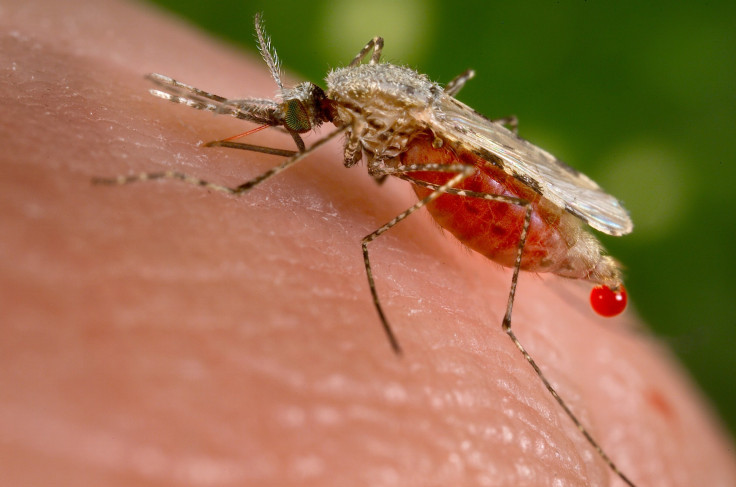Malaria Mosquitoes Most Likely To Transmit Infection In Early Evening: Study

KEY POINTS
- Malaria mosquitoes shifted their biting times to avoid contact with treated bed nets
- Researchers investigated whether the time of bite affects mosquitoes' 'vector competence'
- Results show that mosquitoes are most likely to become infectious in early evening
- It is possible that the temperature during the time of day affects the mosquitoes
Malaria mosquitoes have been changing their feeding behavior in response to insecticide-treated bed nets. In a new study, researchers found the time of the day in which the malaria mosquitoes are most likely to transmit the parasite.
Malaria is a disease caused by the Plasmodium falciparum parasite transmitted by a certain type of mosquito that feeds on humans. In recent years, the global burden of malaria has decreased because of the use of insecticide-treated mosquito nets. However, there have been reports the mosquitoes seem to be shifting their biting behaviors in an effort to avoid getting in contact with the nets.
From the mosquitoes primarily biting people between 9 p.m. and 5 a.m. when they are often asleep under the treated nets, the insects now also bite earlier in the evening and later in the morning when people are out of the nets.
With this in mind, an international team of researchers conducted a series of experiments to determine whether the timing of the bites and the environmental temperature affect the mosquitoes' "vector competence" or ability to acquire the malaria parasite and become infectious.
For the study, the researchers investigated the Anopheles stephensi and the Anopheles gambiae. In one experiment, the researchers found biting time did not affect the mosquitoes’ vector competence when the temperature was maintained at 80 degrees Fahrenheit. However, in another experiment when the researchers maintained fluctuating temperatures that reflect a more realistic environment, they found differences in the mosquitoes’ vector competence depending on the time of day and the temperature.
Specifically, among the Anopheles stephensi mosquitoes, 88% of the evening biters (6:00 p.m.), 65% of midnight biters (12:00 a.m.) and 13% of morning biters (6:00 a.m.) tested positive. As for the Anopheles gambiae mosquitoes, 55% of evening biters, 26% of midnight biters and 0.8% of morning biters tested positive for the parasites.
Simply put, the mosquitoes are most likely to become infectious with and transmit malaria in the early evening, followed by midnight then the morning.
According to the researchers, this might be because of the parasite's thermal sensitivity during initial development within the mosquito. Specifically, the mosquitoes feeding in the evening experience cooler temperatures while those feeding in the morning experience warmer temperatures that hinder parasite establishment.
"Warm temperatures can inhibit parasite establishment, so the longer the time before mosquitoes are exposed to warm daytime temperatures, the better the chances that the mosquito becomes infected," study first author Eunho Suh of Pennsylvania State University said. "Mosquitoes feeding in the morning have only 4 hours before temperatures become too hot for the parasite to be transmitted, while those that feed in the evening have 16 hours of cooler temperatures."
According to study co-author Matthew Thomas, this shift in mosquito biting behavior could reduce the efficacy of treated mosquito nets, posing significant implications for public health.
"There is major concern that shifts in patterns of mosquito feeding could reduce the effectiveness of bed nets, which are our most important tool in the fight against malaria," Thomas said. "Key next steps are to extend the work to field systems to evaluate the robustness of the findings in the real world."
The study was published in Nature Ecology and Evolution.
© Copyright IBTimes 2025. All rights reserved.






















